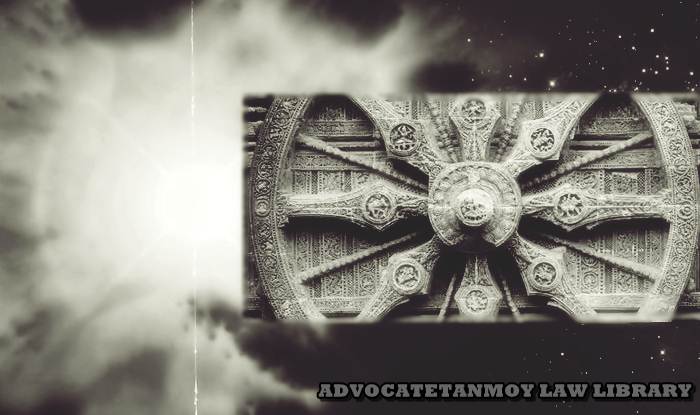Mandvi Co-op. Bank Ltd V. Nimesh B. Thakore, (2010) 3 SCC - In the field of statute law the Judge must be obedient to the will of Parliament as...
StatutoryInterpretation
The truth should be the guiding star in the entire judicial process. Truth alone has to be the foundation of justice. The entire judicial system has been created only to...
Consequence of Trial Court not following well settled law amounts to contempt of Court – SC


19 min read
In Baradakanta Mishra Ex-Commissioner of Endowments v. Bhimsen Dixit, (1973) 1 SCC 446, the appellant therein, a member of Judicial Service of State of Orissa refused to follow the decision...
Courts should not place reliance on decisions without discussing as to how the factual situation fits in with the fact situation of the decision on which reliance is placed.
In relation to statutory construction, our position might be contrasted with that of the State and Territory Supreme Courts. The difference is only one of degree for, in modern times,...
it is not the duty of the court either to enlarge the scope of the legislation or the intention of the legislature when the language of the provision is plain...
Interpretation must depend on the text and the context. They are the basis of interpretation. One may well say if the text is the texture, context is what gives the...
The Court's jurisdiction to interpret a statute can be invoked when the same is ambiguous. It is well known that in a given case the Court can iron out the...
The Constitution of the United States was not ordained and established by the States, but, as the preamble declares, by “the people of the United States.” It was competent for...
The preamble has been said to be a good means to find out the intention of a statute, and, as it were, a key to the understanding of it. It...
What authority has the Master of the Rolls for saying that the courts do look at the marginal notes?” Per Bramwell, L.J.: “What would happen if the marginal notes differed...
The headings of a portion of a statute may be referred to in order to determine the sense of any doubtful expressions in sections ranged under it. (Hammersmith and City...
“An Act.” An Act may, for the purpose of analysis and classification, be considered as consisting of the following parts:— (1) Title, (2) Preamble, (3) Words of enacting authority, (4)...
The enacting part of an Act is not to be controlled by the title or recitals unless the enacting part is ambiguous, and then the title and recitals may be...
Thus when there is an ambiguity in terms of a provision, one must look at well-settled principles of construction but it is not open to first create an ambiguity which...
When a statute enacts that something shall be deemed to have been done, which in fact and truth was not done, the Court is entitled and bound to ascertain for...
If a statute has conferred a power to do an act and has laid down the method in which that power has to be exercised, it necessarily prohibits the doing...
The proper function of a proviso is to except and to deal with a case which would otherwise fall within the general language of the main enactment and its effect...
When a statute is passed for the purpose of enabling something to be done, and prescribed the way in which it is to be done, it may be either an...
Where the plain literal interpretation of a statutory provision produces a manifestly unjust result which could never have been intended by the Legislature, the Court might modify the language used...
In interpreting a taxing statute, equitable considerations are entirely out of place. A taxing statute cannot be interpreted on any presumption or assumption. A taxing statute has to be interpreted...
It is a settled principle of interpretation that the Court should neither add nor delete words from a statute. Where the words of a statute are absolutely clear and unambiguous,...
In Julius v. Bishop of Oxford (1880) 5 A.C. 214 it was observed by Cairns, L.C., at pp. 222-223 that the words "it shall be lawful" conferred a faculty or...
§ 1. The Three Factors of Judging Good judgmentJudgment The statement given by the Judge on the grounds of a decree or order - CPC 2(9). It contains a concise...
General principles for construction of a Will have been reiterated by supreme courtSupreme Court The Court of last resort. Supreme Court of India (26/01/1950), Supreme Court of USA (1798), Supreme Court...
Apex Court in the case of Union of India and Anr. v. Shardindu held that when language of the provision is plain and unambiguous, the question of supplying 'casus omissus'...
It is clear therefore that S. 56 (2) deals with cases where there is a doubt in the mind of the collector in regard to an instrument which comes up...
In construing penal statutes and taxation statutes, the Court has to apply strict rule of interpretation.


10 min read
That strict interpretation does not encompass strict literalism into its fold. It may be relevant to note that simply juxtaposing ‘strict interpretation’ with ‘literal rule’ would result in ignoring an...
If the words in the statute are plain and unambiguous, it becomes necessary to expound those words in their natural and ordinary sense.
A dying declaration not being a deposition in Court, neither made on oath nor in the presence of the accused and therefore not tested by cross-examination is yet admissible in...






